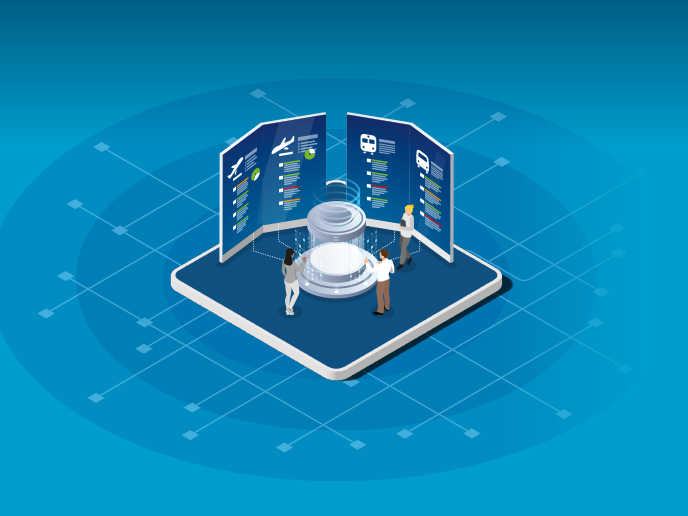V - Designing the future of disruption-proof travel
The presence of air, rail and maritime stakeholders in the consortium has been a huge asset.
Micol Biscotto, Travel Wise project coordinator
Travel Wise(opens in new window) aims to improve passenger experience and service continuity by enhancing real-time coordination and collaborative decision-making across air, rail and maritime modes. Supported by SESAR JU(opens in new window) and coordinated by Italian research hub Deep Blue(opens in new window), the project’s core challenge is to enable coordination between the air, rail and maritime sectors, which operate within very different ecosystems, infrastructures and operational frameworks. As well as improved efficiencies, the project serves a growing need for coordinated and adaptable mobility during major disruptions. “These situations often affect multiple transport modes at once, yet responses are still fragmented and siloed,” explains project coordinator Micol Biscotto.
Disruption-ready mobility
So far, the project has made solid progress. It has developed its Concept of Operations, mapping out how the solution will function in real-life scenarios. A benchmarking study has reviewed current coordination models revealing areas ripe for improvement. Meanwhile the foundations are being laid for three pilots: the Amsterdam–Paris city pair, Athens International Airport and Bologna’s regional airport. Key to the project’s success is its diverse consortium of stakeholders, including transport operators, infrastructure managers, technology providers and user-centred design experts. Their involvement ensures the solution is not only innovative but also practical. “The presence of air, rail and maritime stakeholders in the consortium has been a huge asset,” says Biscotto. Workshops and interviews have also been crucial for capturing exactly what operators and users really need. Early results have delivered a clearer understanding of operational challenges, including the need for real-time decision support, privacy-respecting data sharing, and user-friendly interfaces. One of the key hurdles will be harmonising standards and procedures across different transport sectors and countries. But this challenge has also strengthened the project so far, pushing it to develop a more robust and widely applicable solution. Travel Wise aims to deliver more than a concept, it hopes to create a validated, ready-to-use framework that improves multimodal transport coordination, so that passengers can keep moving, even in the face of the unexpected.



